
Discover the Historic Kunta Kinteh Island
Kunta Kinteh Island, located in the River Gambia, is a place steeped in history and cultural significance. This small island is named after Kunta Kinteh, the famous character from Alex Haley's novel 'Roots'. It played a crucial role in the transatlantic slave trade as a point of embarkation for many enslaved Africans. Visiting the island, you'll find remnants of a fort built by the British in the 17th century, which was used to imprison enslaved people before they were shipped to the Americas. The island's historical significance has earned it a place on the UNESCO World Heritage list. As you explore, you can reflect on the powerful history and the resilience of the people who passed through this place. In addition to its historical attractions, the island offers natural beauty. Surrounded by the tranquil waters of the River Gambia, it provides a peaceful and contemplative atmosphere. The journey to the island itself is an adventure, often involving a boat ride from nearby towns like Juffureh, enhancing the experience of visiting this unique destination.
Local tips in Kunta Kinteh Island
- Wear comfortable walking shoes as the island terrain can be uneven.
- Bring sunscreen and a hat to protect yourself from the sun during the boat ride and tour.
- Consider hiring a local guide to get a deeper understanding of the island's history.
- Visit the nearby village of Juffureh, where you can learn more about the local culture and history.
- Carry bottled water as there are limited facilities on the island.
Discover the Historic Kunta Kinteh Island
Kunta Kinteh Island, located in the River Gambia, is a place steeped in history and cultural significance. This small island is named after Kunta Kinteh, the famous character from Alex Haley's novel 'Roots'. It played a crucial role in the transatlantic slave trade as a point of embarkation for many enslaved Africans. Visiting the island, you'll find remnants of a fort built by the British in the 17th century, which was used to imprison enslaved people before they were shipped to the Americas. The island's historical significance has earned it a place on the UNESCO World Heritage list. As you explore, you can reflect on the powerful history and the resilience of the people who passed through this place. In addition to its historical attractions, the island offers natural beauty. Surrounded by the tranquil waters of the River Gambia, it provides a peaceful and contemplative atmosphere. The journey to the island itself is an adventure, often involving a boat ride from nearby towns like Juffureh, enhancing the experience of visiting this unique destination.
When is the best time to go to Kunta Kinteh Island?
Unmissable attractions to see
Bijilo National Park
Explore the stunning biodiversity and serene landscapes of Bijilo National Park, a must-visit eco-tourism destination in Gambia.
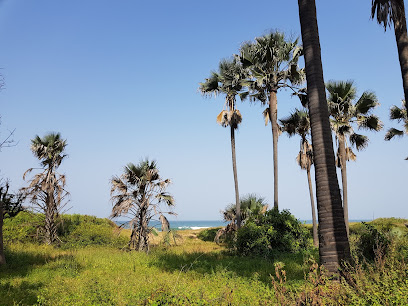
Abuko Nature Reserve
Explore the diverse wildlife and lush landscapes of Abuko Nature Reserve in Lamin, The Gambia, a must-visit for nature enthusiasts and bird watchers.
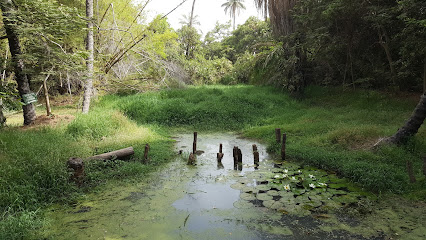
Crocodile Pool
Explore the enchanting Crocodile Pool in Bakau, a serene park offering a unique glimpse into the lives of Nile crocodiles amidst lush surroundings.
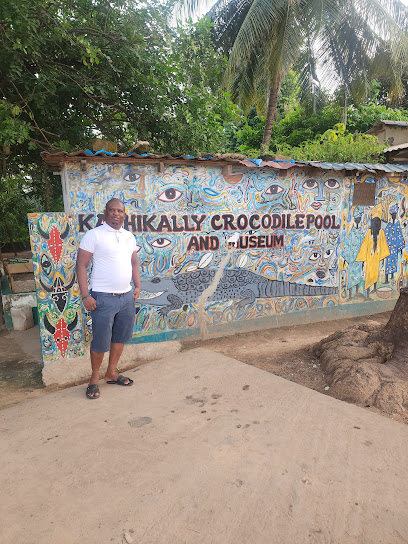
Senegambia Beach
Experience the vibrant culture and breathtaking beauty of Senegambia Beach, a must-visit destination for travelers in The Gambia.
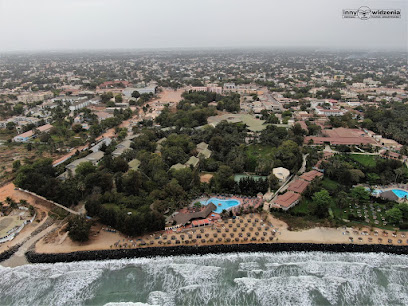
Makasutu
Discover the natural beauty and cultural heritage of Makasutu, a national park in The Gambia that offers unforgettable wildlife experiences and serene landscapes.
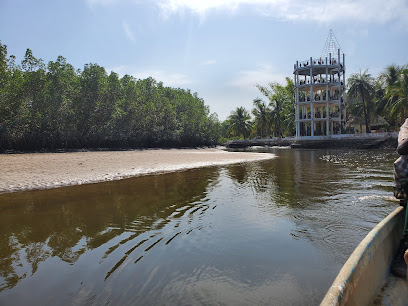
Kunta Kinteh island / St. James Fort
Explore the haunting beauty and historical significance of Kunta Kinteh Island and St. James Fort, a UNESCO World Heritage site in the Gambia.
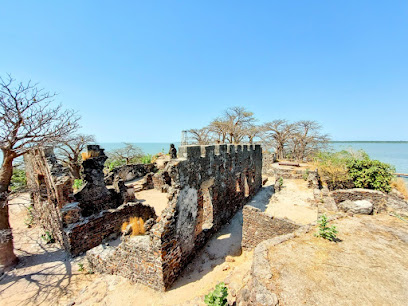
Farasutu Forest
Discover the serene beauty of Farasutu Forest, a national treasure in Kuloro, The Gambia, ideal for nature lovers and adventure seekers.

Bird Guide Gambia - Abdoulie Ndure
Explore the vibrant avian life at Bird Guide Gambia in Lamin, a premier birdwatching destination offering guided tours and breathtaking birding experiences.
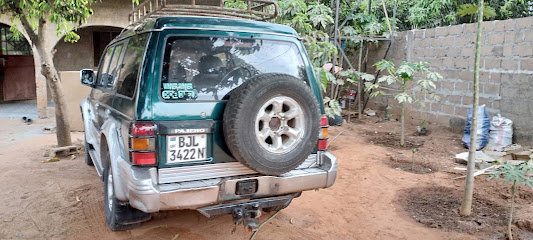
King Fisher
Experience the vibrant culture and stunning beauty of Kotu Beach at King Fisher, a must-visit tourist attraction in Banjul, The Gambia.
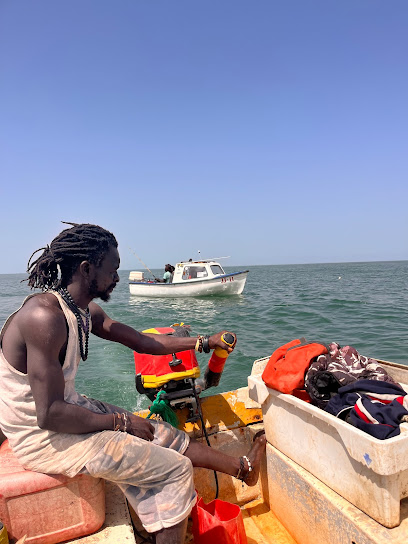
Bijilo Beach Bijilo, Gambia
Discover the serene beauty of Bijilo Beach in Gambia, where golden sands meet vibrant culture and thrilling adventures await every traveler.
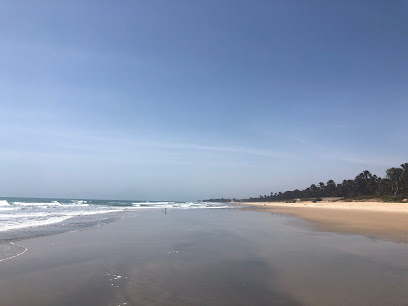
Kembujeh Forest Park
Discover the tranquil beauty of Kembujeh Forest Park, a serene national forest in Brikama, Gambia, perfect for nature lovers and outdoor enthusiasts.
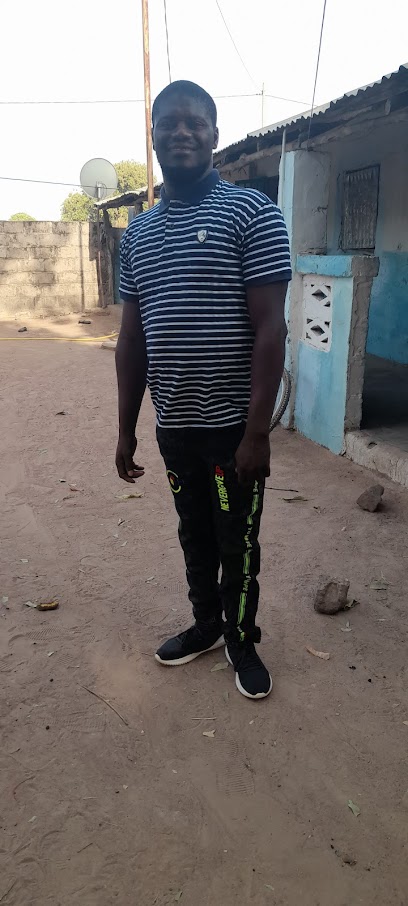
Brusubi roundabout/ turntable
Experience the vibrant culture and lively atmosphere at Brusubi Roundabout, the heart of local life in The Gambia.
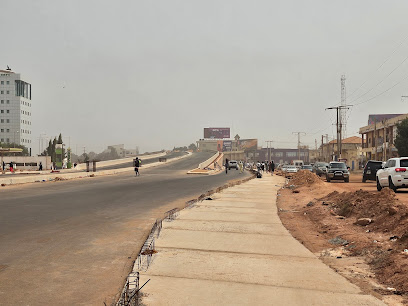
Pirang-Bonto community forest park
Explore the tranquil beauty of Pirang-Bonto Community Forest Park, a national forest in The Gambia rich in wildlife and local culture.

Camp Paradise Island
Discover the beauty of Camp Paradise Island, a national park in Niji offering breathtaking landscapes, boat tours, and serene camping experiences.
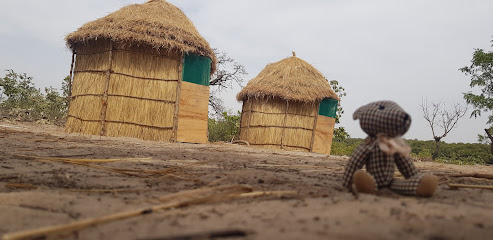
J.K Sunrise Valley Farm.
Discover the charm of Gunjur at J.K Sunrise Valley Farm, a vibrant farmers' market and garden showcasing local produce and Gambian culture.
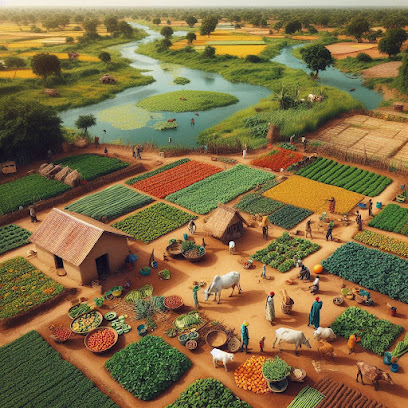
Essential places to dine
Poco Loco Beachbar Gambia
Experience vibrant beach vibes at Poco Loco Beachbar in Gambia—where good food meets stunning ocean views.
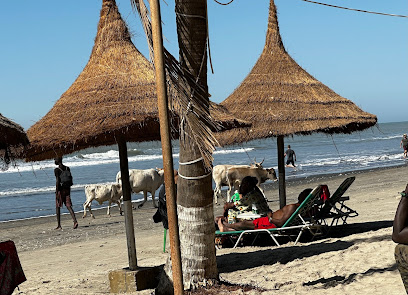
John Raymond'S Beach Bar And Restaurant
Discover local flavors and breathtaking views at John Raymond's Beach Bar and Restaurant in Serrekunda.
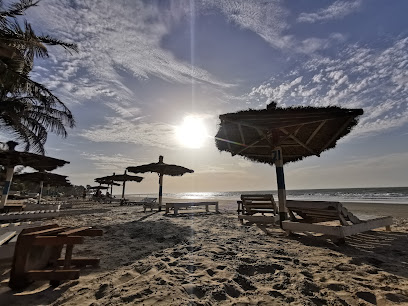
Mo2 Jamaican Bar & Restaurant Gambia (Mosiah's)
Discover the vibrant taste of Jamaica at Mo2 Jamaican Bar & Restaurant in Serrekunda, Gambia - where every meal is a celebration.
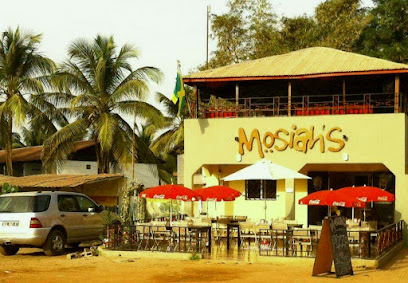
Gusto Italian Resto &bar
Experience authentic Italian flavors at Gusto Italian Resto & Bar in Senegambia - where every dish tells a story.
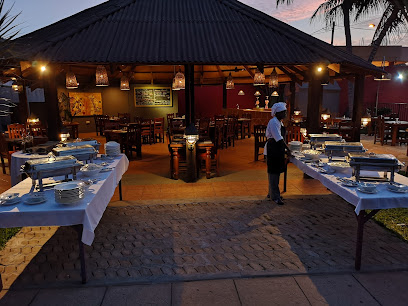
Paradise Beach Club Gambia
Experience exquisite dining at Paradise Beach Club Gambia - where delicious flavors meet stunning coastal views.
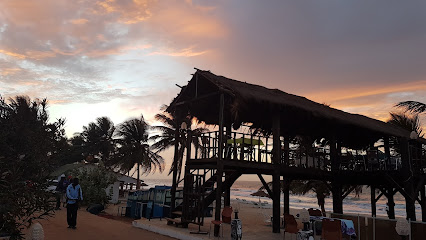
3 Chicks & A Grill
Discover delicious grilled specialties at 3 Chicks & A Grill on Senegambia Strip – a vibrant dining experience blending local flavors with international flair.
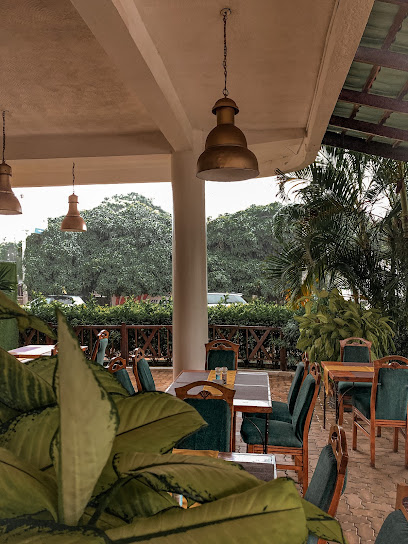
Sea Shells Bar & Restaurant
Experience exquisite flavors at Sea Shells Bar & Restaurant in Serrekunda - where local cuisine meets international delights.
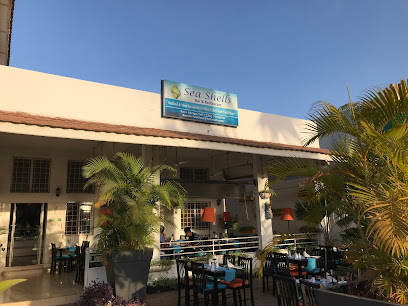
The Clay Oven
Experience authentic Gambian flavors at The Clay Oven in Serrekunda - where every dish tells a story.
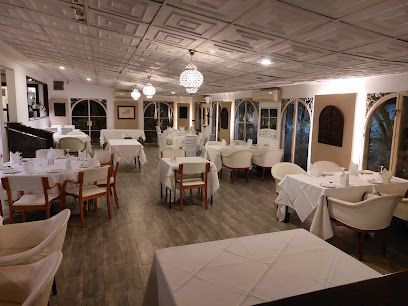
Sambas Kitchen
Experience the heart of Gambian cuisine at Sambas Kitchen in Serrekunda – a must-visit restaurant for food lovers.
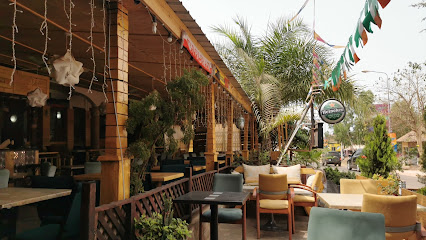
Buka African Kitchen
Experience authentic Nigerian flavors at Buka African Kitchen in Kololi, The Gambia - where every meal tells a story.
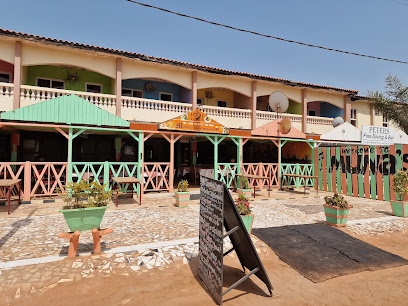
Kasumai BBQ and Steak House
Experience exquisite grilled meats at Kasumai BBQ and Steak House near Bijilo Beach – A top destination for food lovers in The Gambia.
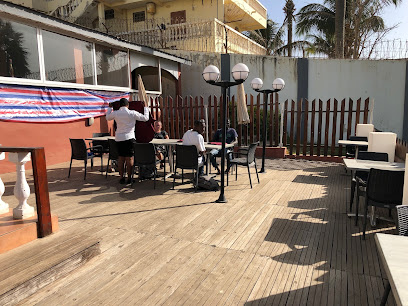
Heritage Restaurant
Experience authentic Gambian cuisine at Heritage Restaurant in Serrekunda – where tradition meets flavor.
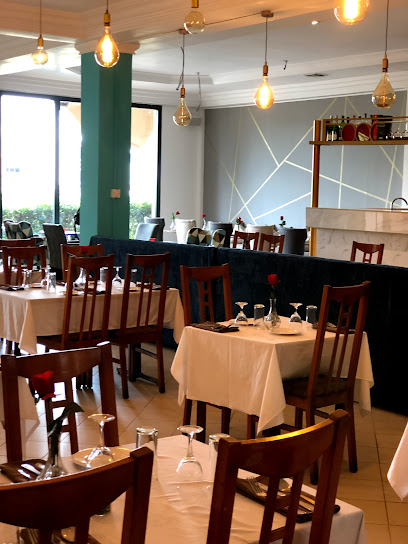
Jamaica Jamaica restaurant and night club
Discover authentic Jamaican flavors and vibrant nightlife at Jamaica Jamaica Restaurant and Night Club in Serrekunda.
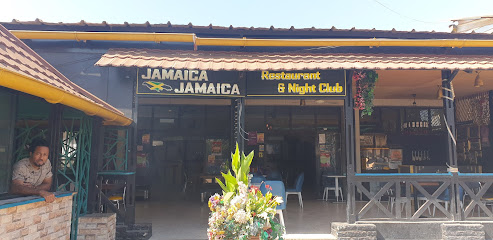
The Fajara Garden Restaurant
Experience authentic Gambian cuisine at Fajara Garden Restaurant in Serrekunda, where family-friendly dining meets vibrant culture.
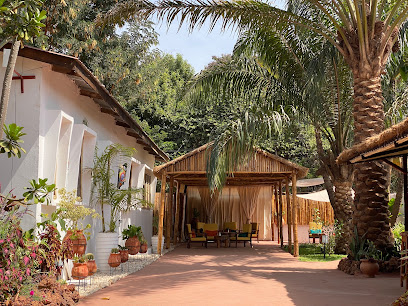
Crown Restaurant
Discover authentic Gambian flavors at Crown Restaurant in Banjul – where every dish is crafted with passion and tradition.
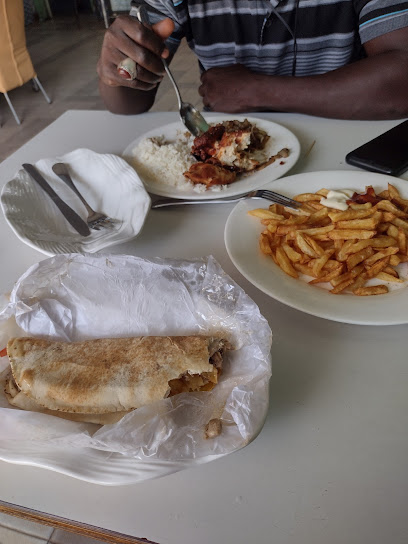
Markets, malls and hidden boutiques
Emporium Banjul
Explore the vibrant textiles of Gambia at Emporium Banjul, a premier fabric store showcasing local craftsmanship and unique designs.
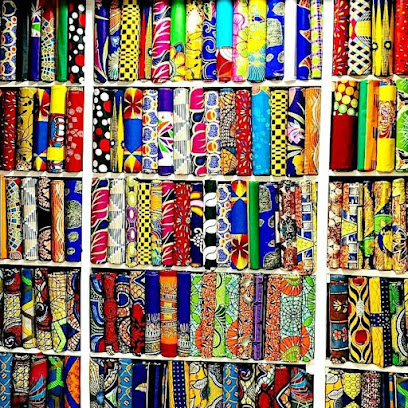
Bojang kunda Central Market
Discover Bojang Kunda Central Market, The Gambia's vibrant hub for home goods, local cuisine, and authentic cultural experiences.
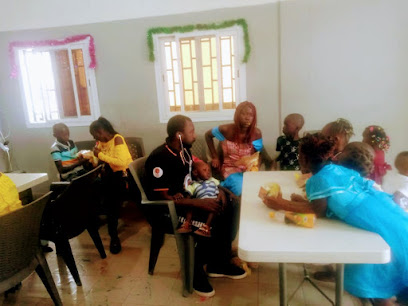
Ous Boutique
Explore the artistic treasures of Pirang at Ous Boutique, where vibrant posters and local craftsmanship await every visitor.
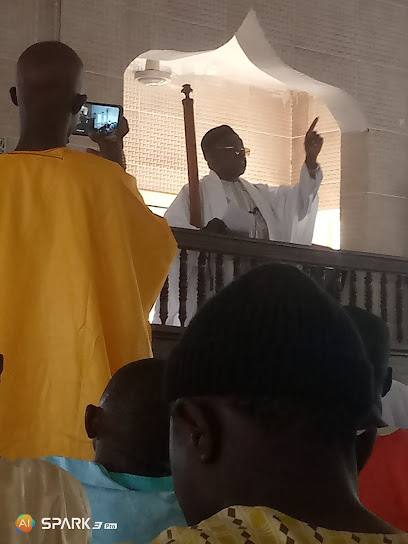
Aelia Dutyfree
Discover a world of luxury shopping at Aelia Dutyfree in Yundum, where premium products await every discerning traveler.

M.K Import Export
Discover the essence of Gambian culture through vibrant fashion at M.K Import Export, Banjul's premier clothing destination.

African Queen Tailoring Shop
Experience the elegance of bespoke tailoring at African Queen Tailoring Shop in Banjul, where tradition meets contemporary fashion.
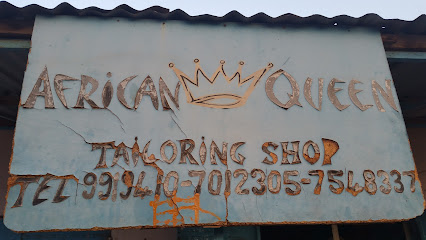
Racin Prestige Shop
Explore Racin Prestige Shop in Banjul for unique Gambian souvenirs and a taste of local culture.

High Class Fashion Shop
Explore Brikama's High Class Fashion Shop for an exclusive selection of stylish clothing and accessories that capture the essence of local fashion.
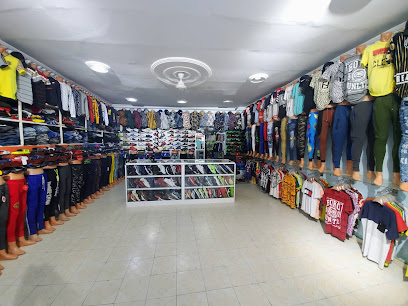
African Fabrics
Explore the vibrant world of African textiles at African Fabrics, where tradition meets craftsmanship in beautiful handmade gifts.

Jezner shop
Explore Jezner Shop in Banjul for unique gifts and souvenirs that celebrate the rich culture and artistry of The Gambia.

Jammeh Kunda
Explore Jammeh Kunda in Lamin for unique home goods that showcase the vibrant culture and craftsmanship of Gambia, perfect for memorable souvenirs.

Saine Pottery Studio
Explore the beauty of Gambian craftsmanship at Saine Pottery Studio, where each handcrafted piece reflects rich cultural artistry and creativity.
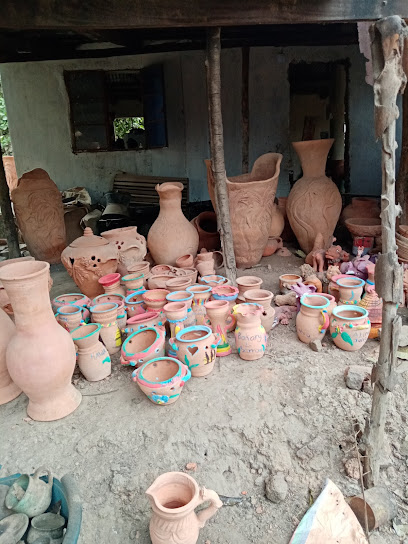
Omar Joof's Shop
Explore Omar Joof's Shop in Banjul for unique, handcrafted fashion accessories that celebrate Gambian culture and artistry.
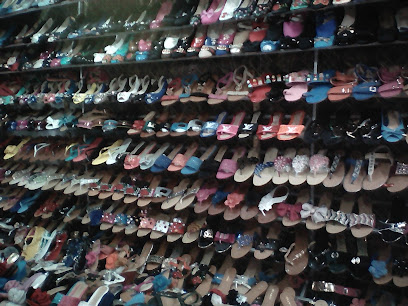
Coca Cola Amadou wurry shop
Discover the refreshing taste and vibrant atmosphere at Coca Cola Amadou Wurry Shop in Banjul, Gambia's charming beverage destination.

Barry shop
Explore Barry Shop in The for unique local crafts and authentic souvenirs that capture the spirit of the region.

Essential bars & hidden hideouts
Solomon’s Beach Bar & Restaurant
Experience the vibrant culture and flavors of Gambia at Solomon’s Beach Bar & Restaurant, your ultimate beachside retreat.
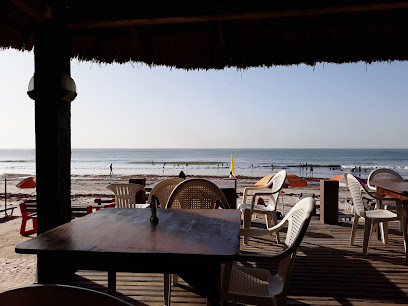
Calypso bar & restaurant
Enjoy a unique dining experience at Calypso Bar & Restaurant in Bakau, where delicious food, refreshing drinks, and a vibrant atmosphere await you.
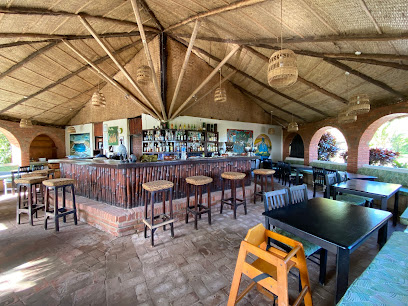
GT's Bar & Restaurant
Discover the vibrant spirit of Gambia at GT's Bar & Restaurant in Serrekunda, where delicious food and lively ambiance await you.
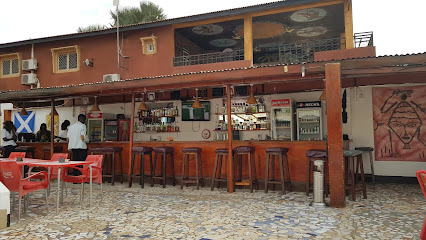
Roots Beach Bar & Restaurant
Discover the charm of Roots Beach Bar & Restaurant in Bijilo, where delicious cuisine meets stunning ocean views in a vibrant atmosphere.
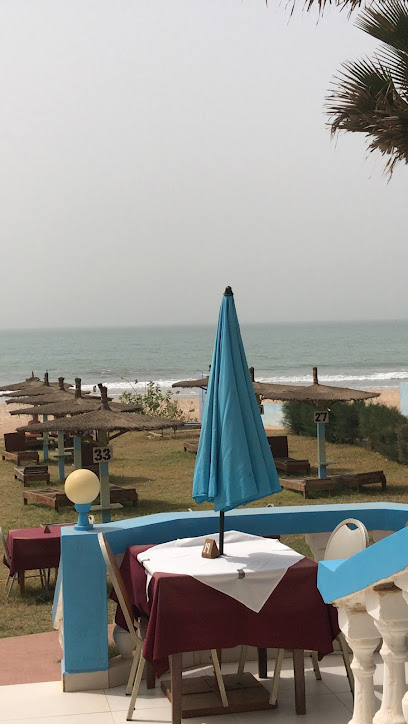
The Kotu Point Beach Bar
Experience the vibrant atmosphere of Kotu Point Beach Bar – a perfect blend of refreshing drinks, delicious snacks, and stunning beach views in The Gambia.
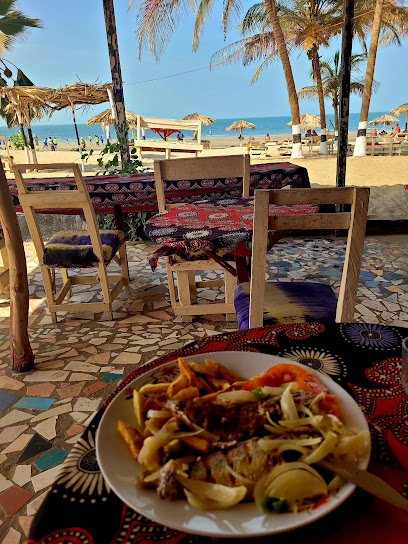
Cassy's Lounge
Experience vibrant nightlife at Cassy's Lounge in Serrekunda, where cocktails, music, and camaraderie create unforgettable memories.
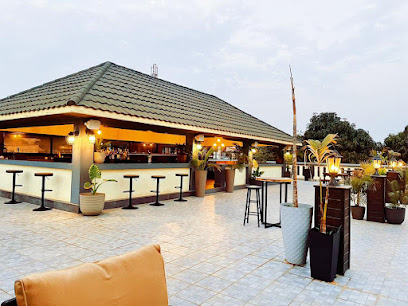
Batu Kunku Paradise
Discover Batu Kunku Paradise, your serene bar escape in Batukunku, offering refreshing drinks and a tranquil atmosphere amidst nature's beauty.
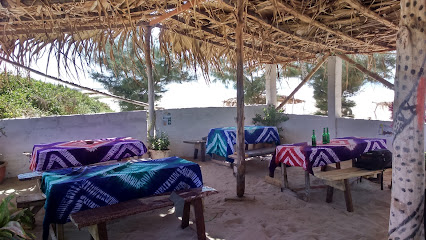
Tinas restaurant and beer garden
Experience the vibrant atmosphere at Tina's Restaurant and Beer Garden, a culinary haven in Brusubi with live music and delicious local and international cuisine.
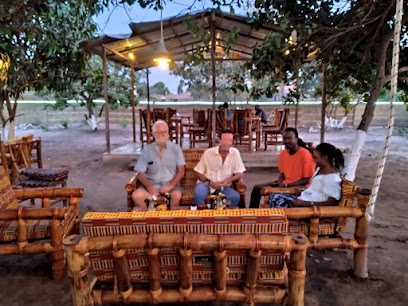
Rainbow beach bar and lodgings
Experience the lively atmosphere and breathtaking views at Rainbow Beach Bar and Lodgings, the perfect seaside escape in Sanyang, Banjul.
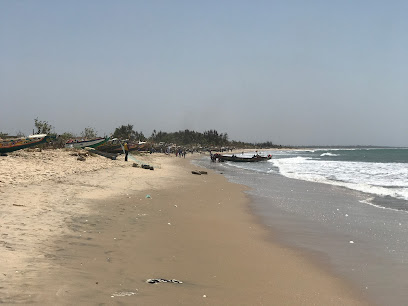
Rising Sun, Bar & Restaurant
Experience the best of Gambian cuisine at Rising Sun Bar & Restaurant, where local flavors meet international culinary delights in a vibrant setting.
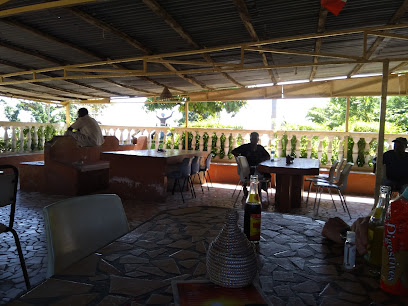
Fansue's Beach Bar & Restaurant
Experience the flavors of the sea at Fansue's Beach Bar & Restaurant, where exquisite cuisine meets the beauty of Batokunku Beach.
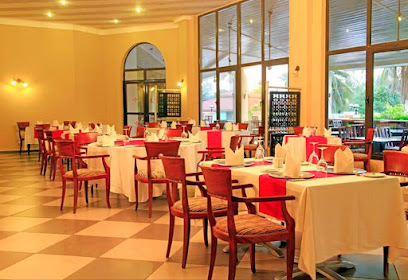
The Blue Bar
Discover the vibrant nightlife at The Blue Bar in Banjul, where refreshing drinks meet breathtaking ocean views in a laid-back atmosphere.
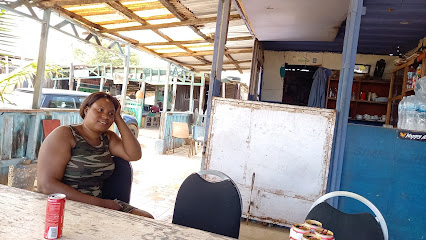
Papa's Bar
Experience the vibrant nightlife at Papa's Bar in Serrekunda, where friendly ambiance meets refreshing drinks and lively conversations.
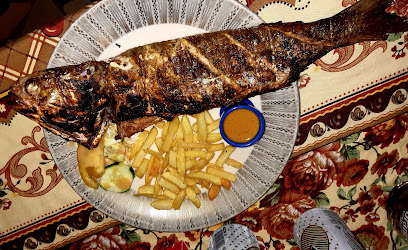
Happy place Bar and Restaurant
Experience the vibrant culture of Banjul at Happy Place Bar and Restaurant, where local flavors meet a lively atmosphere.
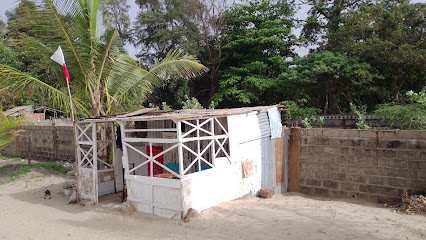
Local Phrases about Kunta Kinteh Island
-
- HelloSalut
[sah-loo] - GoodbyeBa beneen
[bah beh-neen] - YesWaaw
[wah-oh] - NoDéedéet
[deh-deh] - Please/You're welcomeJërejëf
[jay-ray-jayf] - Thank youJërëjëf
[jay-ray-jayf] - Excuse me/SorryBa beneen
[bah beh-neen] - How are you?Nanga def?
[nahn-gah dehf] - Fine. And you?Jam rek. Nopp ci?
[jahm rehk. nop-chi] - Do you speak English?Benn laa ñu Angalee?
[beh-n lah noo ahn-gah-lee] - I don't understandDéedéet
[deh-deh]
- HelloSalut
-
- I'd like to see the menu, pleaseNopp nga am menu, dafa ba beneen
[nop-ngah ahm meh-noo, dah-fah bah beh-neen] - I don't eat meatDéedéet
[deh-deh] - Cheers!Ba beneen
[bah beh-neen] - I would like to pay, pleaseNopp nga amul, dafa ba beneen
[nop-ngah ah-mool, dah-fah bah beh-neen]
- I'd like to see the menu, pleaseNopp nga am menu, dafa ba beneen
-
- Help!Ndank
[n-dah-nk] - Go away!Bara la
[bah-rah lah] - Call the Police!Nopp nga wax Police
[nop-ngah wakh poh-leece] - Call a doctor!Nopp nga wax dokter
[nop-ngah wakh dohk-tehr] - I'm lostDéedéet
[deh-deh] - I'm illDéedéet
[deh-deh]
- Help!Ndank
-
- I'd like to buy...Nopp nga jëkk...
[nop-ngah jayk] - I'm just lookingDéedéet
[deh-deh] - How much is it?Samaa laa?
[sah-mah lah] - That's too expensiveSamaa bu baax
[sah-mah boo bah] - Can you lower the price?Baax naa la?
[bah bah lah]
- I'd like to buy...Nopp nga jëkk...
-
- What time is it?Waar naa la?
[wah-nah lah] - It's one o'clockÑaari yow
[nyah-ree yoh] - Half past (10)Déedéet
[deh-deh] - MorningKër gi
[kehr gee] - AfternoonPeleer gi
[peh-lehr gee] - EveningJëm gi
[jaym gee] - YesterdayDéedéet
[deh-deh] - TodayDéedéet
[deh-deh] - TomorrowDéedéet
[deh-deh] - 1Një
[n-jeh] - 2Ñaar
[nyar] - 3Tàttu
[taht-too] - 4Nènti
[nehn-tee] - 5Juróom
[joo-room] - 6Jàmm
[jahm] - 7Jàmm
[jahm] - 8Jàmm
[jahm] - 9Jàmm
[jahm] - 10Fukk
[fook]
- What time is it?Waar naa la?
-
- Where's a/the...?Nopp nga am...
[nop-ngah ahm] - What's the address?Nopp nga amul adres
[nop-ngah ah-mool ah-drehs] - Can you show me (on the map)?Baax naa la?
[bah bah lah] - When's the next (bus)?Déedéet
[deh-deh] - A ticket (to ....)Déedéet
[deh-deh]
- Where's a/the...?Nopp nga am...
History of Kunta Kinteh Island
-
Kunta Kinteh Island, formerly known as James Island, has a rich history that dates back to the early times when it was inhabited by the indigenous Jola people. These early settlers were skilled fishermen and traders who utilized the island's strategic location along the River Gambia to establish trade routes and interact with other tribes.
-
In the mid-15th century, Portuguese explorers arrived in the region and claimed the island. They named it 'St. Andrew's Island' and established it as a trading post. This marked the beginning of European influence in the area, which would later see the arrival of other colonial powers.
-
In 1651, the island came under the control of the Duchy of Courland, a vassal state of Poland-Lithuania. They constructed Fort James to protect their trading interests. The fort was named in honor of King James II of England after the British took control of the island in 1661. Fort James served as a key point in the transatlantic slave trade.
-
During the height of the transatlantic slave trade, Kunta Kinteh Island became a significant holding point for enslaved Africans. Captured individuals were kept in the island's dungeons before being shipped across the Atlantic to the Americas. The island's harrowing history is a stark reminder of the dark chapter in human history.
-
The island gained international recognition through Alex Haley's novel 'Roots,' which tells the story of Kunta Kinte, an African man captured and sold into slavery. Kunta Kinte is believed to have originated from the nearby village of Juffureh. The island was renamed Kunta Kinteh Island in 2011 to honor his legacy and highlight the island's historical significance.
-
In 2003, Kunta Kinteh Island and the associated sites in Juffureh were designated as a UNESCO World Heritage Site. This recognition underscores the island's historical importance and the need to preserve its legacy. The site includes remnants of the fort, cannons, and other structures that provide insight into the island's colonial past.
-
Today, Kunta Kinteh Island is a poignant cultural and historical landmark. Visitors to the island can explore the ruins of Fort James, learn about the transatlantic slave trade, and pay their respects to the memory of those who suffered. The island is a powerful educational site that attracts tourists, scholars, and descendants of the African diaspora.
Kunta Kinteh Island Essentials
-
Kunta Kinteh Island is located in the Gambia River, near the village of Juffureh. The nearest international airport is Banjul International Airport (BJL), which is approximately 30 kilometers away from Juffureh. From Banjul, you can take a taxi or a local bus to the village of Barra, and then a ferry across the river to Juffureh. From Juffureh, local boats can be hired to take you to Kunta Kinteh Island.
-
The island itself is quite small, and most visitors explore it on foot. For getting to and from the island, local boats are the primary mode of transportation. In Juffureh and Barra, taxis and local minibuses (known as 'gelly-gelly') are available and relatively inexpensive. It's advisable to agree on the fare beforehand when using taxis.
-
The official currency in The Gambia is the Gambian Dalasi (GMD). While credit cards are accepted in some hotels and restaurants in Banjul, cash is the preferred method of payment in smaller establishments and rural areas such as Juffureh. ATMs are available in Banjul, but it's wise to carry sufficient cash when traveling to more remote areas.
-
Kunta Kinteh Island and the surrounding areas are generally safe for tourists. However, it is advisable to take standard precautions. Avoid walking alone at night in unfamiliar areas and keep an eye on your belongings in crowded places. While there are no specific high-crime areas targeting tourists, it is always best to stay vigilant and aware of your surroundings.
-
In case of an emergency, dial 117 for police assistance and 116 for medical emergencies. It is recommended to have travel insurance that covers medical emergencies. For minor health issues, there are pharmacies in Banjul where you can purchase over-the-counter medications. In Juffureh, there are basic medical facilities available.
-
Fashion: Do dress modestly, particularly when visiting local villages. Avoid wearing revealing clothing. Religion: Do respect local customs and traditions. Be mindful of prayer times and avoid interrupting. Public Transport: Do be respectful and patient when using public transport. Don't eat or drink on public transport. Greetings: Do greet people with a smile and a handshake. It is polite to ask about someone's well-being before jumping into a conversation. Eating & Drinking: Do try local dishes and accept food offerings graciously. Don't refuse hospitality, as it is considered impolite.
-
To experience Kunta Kinteh Island like a local, engage with the local guides who can share rich stories about the island's history and culture. Visit the local markets in Juffureh and Barra to buy fresh produce and traditional Gambian crafts. Don't miss the chance to participate in local cultural events and festivals, which offer a unique insight into the Gambian way of life.
Nearby Cities to Kunta Kinteh Island
-
Things To Do in Brikama
-
Things To Do in Lamin
-
Things To Do in Serekunda
-
Things To Do in Serrekunda
-
Things To Do in Bakau
-
Things To Do in Gunjur
-
Things To Do in Farafenni
-
Things To Do in Soma
-
Things To Do in Kaolack
-
Things To Do in Mbour
-
Things To Do in Canchungo
-
Things To Do in Janjanbureh
-
Things To Do in Thiès
-
Things To Do in Bissau
-
Things To Do in Dakar









